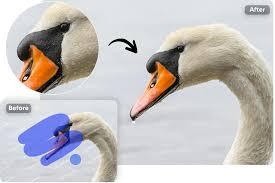Winds Across the Channel: How UK Residents Are Taxed on French Income

The complexities of international finance touch those who straddle the cultural and economic streams between the United Kingdom and France. From the rolling vineyards of Bordeaux to the bustling streets of London, financial exchanges across this storied channel can weave a confusing web for residents earning across borders. This article explores taxation on French income for UK residents, shedding light on the fiscal responsibilities that come with this unique monetary landscape.
French Earnings Under UK Taxation
For UK residents, global income must be declared to Her Majesty's Revenue and Customs (HMRC), which includes earnings accrued from French sources. This is irrespective of whether it emanates from employment, self-employment, rental properties, or investments in France. The necessity to declare such income ensures compliance with UK tax laws and avoids potential complications.
The taxation rate applied depends largely on the total annual income bracket into which one falls. Ordinarily, French income would be subject to France’s tax rates initially. However, thanks to the double taxation agreement (DTA) between the UK and France, UK residents are not taxed twice. Instead, taxes paid in France are typically accounted for through a foreign tax credit that reduces UK tax liabilities by an equivalent amount.
UK individuals who receive French income may also be required to file a French tax return, depending on their circumstances and the nature of their income. This requirement underscores the importance of understanding both nations' tax systems to avoid penalties or overpayment.
Navigating UK Tax Obligations for French Nationals
For French nationals residing in the UK, the tax implications slightly pivot. The primary concern remains residency status. Any French citizen living in the UK for more than 183 days within a tax year generally attains tax residency, thereby necessitating the reporting of worldwide income to HMRC. The received income from France then undergoes assessment under the DTA.
Staying compliant with HMRC expectations is crucial and could involve considering various forms of documentation and filings. This could range from regular income through employment, rental yields from properties retained in France, or gains from business endeavours on French soil.
Dual-Channel Financial Wisdom
It is essential for those dealing with transnational incomes between France and the UK to engage in diligent financial planning. The critical step includes a thorough consultation with tax advisors knowledgeable in both countries' tax regulations. With fluctuating economic policies and tax rates, having a professional who can navigate these turbulent waters becomes invaluable.
Equally significant is maintaining accurate records of all foreign earnings and understanding specific cross-border taxation rules that might apply due to changes in resident status or new legislative measures in either country. Additionally, leveraging technology to track financial movements across countries can streamline processes and ensure timely compliance.
Whether strolling past Parisian cafés or hustling through London's financial district, managing cross-Channel financial commitments need not be daunting if approached methodically and advisedly.
Ultimately, recognizing and respecting the fiscal norms of both sovereignties allows for smoother financial integration and minimizes unwelcome surprises during tax season. Serving as competent navigators through these shared yet distinct economic corridors will help secure one's financial health while maintaining compliance in multinational fiscal habitats.










Comments